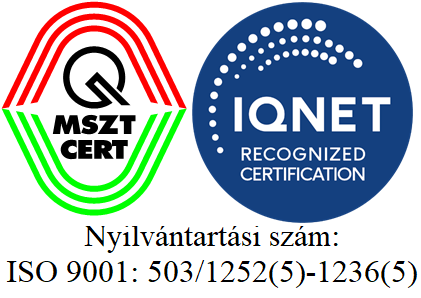News
Press release on the lifetime-extension of the Paks NPP
2012.12.18
Taking into consideration complex technical and economic analysis, the General Assembly of the MVM Paks Nuclear Power Plant Ltd. (NPP) decided about the lifetime-extension of its units in January 2001...
Comprehensive safety reassessment of the NPP, Paks, Hungary
2012.12.19
After the Fukushima accident, the Council of the European Union decided to carry out a comprehensive safety reassessment of the NPPs in its member states. The official remark for the so-called “stress test” is “Targeted Safety Reassessment”.
HAEA won the EC RESPEC project
2012.12.17
In June 2012 the Directorate General for Energy of the European Commission (EC) opened a tender on the RESPEC project (Radiological Emergency Support Project for the European Commission) for the period from 2013 to 2016.
Lifetime extension licensing process of MVM Paks Nuclear Power Plant
2012.12.19
After having performed complex technical and economical analysis, MVM Paks Nuclear Power Plant Plc. decided to start the lifetime extension licensing process. The programme of the process, after having been approved by the authority, have been executed under authority surveillance.
Inauguration of the National Radioactive Waste Repository
2012.12.06
On 5 December 2012, after a long preparatory and construction period, the inaugural ceremonies of the National Radioactive Waste Repository took place in Bátaapáti. The participants of the inauguration were addressed by Ferenc Kereki, chief executive officer of the Public Limited Company for Radioactive Waste Management (PURAM), Árpád Potápi, Member of the Parliament and mayor of the nearby town Bonyhád, Józsefné Darabos, mayor of Bátaapáti and president of the Social Control Information Association, József Rónaky, director general of the Hungarian Atomic Energy Authority (HAEA), Sándor Nagy, chief executive officer of the MVM Paks II Ltd. and Ute Blohm-Hieber, representing the European Commission. In the press conference before the inauguration Ferenc Kereki told that the new facility and its licences allow disposing of about 40 000 m3 radioactive waste in Bátaapáti from the operation and future decommissioning of the nuclear power plant, at 250 m below ground level. The first disposal chamber provides the possibility to dispose of 4600 drums of radioactive waste in 510 reinforced concrete containers, and by building further chambers the disposal of low and intermediate level radioactive waste will be continuously assured. József Rónaky, director general of HAEA underlined to the press that the commissioning of the repository was the result of a long and instructive procedure and of the common work of representatives of various professions. The director general pointed also out the importance of the Central Nuclear Financial Fund expressing the active state commitment to the disposal of radioactive waste.



 ©HAEA - All rights reserved
©HAEA - All rights reserved